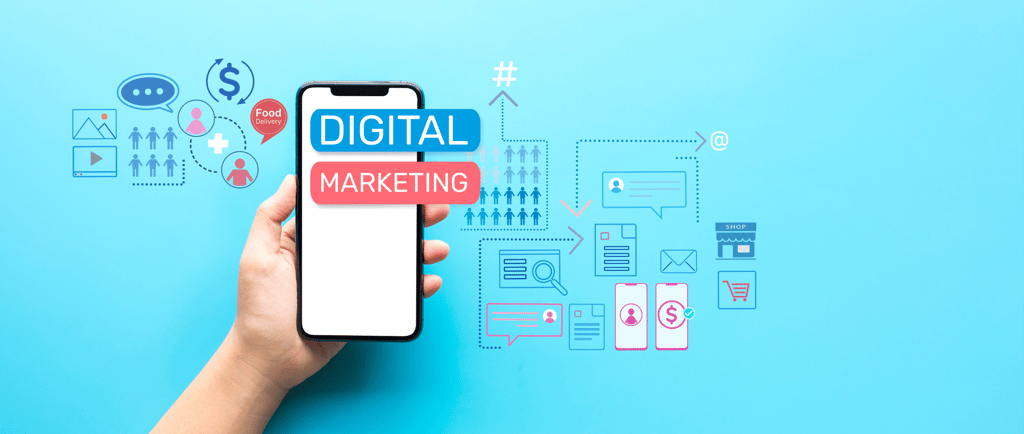
What Is Digital Marketing? Find Out in 10 Minutes
12/10/20249 min read


Welcome to the world of Digital Marketing, where the rules of traditional marketing have been upended, and a whole new game is being played. In this article, we will demystify the complex world of digital advertising and provide you with essential knowledge to navigate this fast-paced and ever-evolving landscape.
Digital Marketing encompasses a wide range of digital channels and tactics, including Search Engine Optimization (SEO), Social Media Marketing, content marketing, and online advertising such as Google Ads. It’s about reaching your target audiences, engaging them with relevant content, and driving conversion rates through strategic digital marketing efforts. According to Statista, the number of digital shoppers in the U.S. reached 230.5 million in 2021, emphasizing the growing importance of online marketing strategies.
In this guide, we will explore the fundamentals of digital marketing channels, uncover the benefits of leveraging digital platforms, and showcase how to create digital marketing strategies that align with your business goals. Whether you're a business owner, marketer, or aspiring digital marketer, this article will equip you with the tools to thrive in the dynamic world of digital communication.
The Evolution of Digital Marketing
Digital marketing has undergone a remarkable transformation over the past few decades. Initially dominated by traditional marketing channels like print and television advertising, the advent of the internet revolutionized the way brands connect with their customer base. The rise of search engines like Google introduced the era of Search Engine Marketing (SEM) and engine optimization, enabling businesses to drive organic traffic to their websites.
As digital platforms like Facebook and Instagram gained popularity, social media channels became essential tools for businesses to reach active users. From creating social media posts to leveraging video content and social media ads, brands began exploring the possibilities of social platforms to foster customer loyalty and connect with prospective customers. Today, technologies like mobile apps, Affiliate Marketing, and Native advertising have further expanded the possibilities of digital marketing tactics. According to a study, 16% of users engage on platforms like TikTok, further diversifying marketing opportunities. Furthermore, 46% of consumers watch videos as part of their digital experience.
In recent years, technological advertising has seen significant advancements. Tools like Google Analytics and real-time data analysis allow marketers to craft campaigns with a strategic approach and measure customer experiences with precision. As businesses continue to embrace digital marketing strategies, the focus has shifted from broadcasting promotional messages to creating personalized, valuable content that resonates with B2C customers and B2B companies alike.
Benefits of Digital Marketing for Businesses
1. Targeted Reach for Ideal Customers
Unlike traditional marketing, which often targets a broad audience, digital marketing enables businesses to pinpoint their ideal customers through advanced targeting. Whether reaching B2C companies or specific demographics, platforms like Google Ads and social media channels provide unparalleled access to prospective customers. In fact, 86% of industry professionals believe that targeted strategies drive better engagement.
2. Cost-Effective Campaigns
From email marketing campaigns to Video Marketing, digital marketing tactics are highly scalable and adaptable, allowing even small businesses with limited marketing budgets to compete with larger brands. Channels like email campaigns and content marketing deliver exceptional ROI by driving engagement with current customers while attracting new ones. With options like MailChimp and HubSpot's courses, businesses can manage scalable campaigns without overextending budgets.
3. Measurable Results
Using tools like Google Analytics, businesses can monitor their digital marketing campaigns in real time. Metrics such as click-through rate (CTR) and conversion rates provide insights into campaign performance, enabling data-driven decisions for future strategies.
Key Components of a Successful Digital Marketing Strategy
Creating an impactful digital marketing plan requires a holistic approach that integrates multiple marketing channels. Here are the key component:
1. Clear Objectives
Defining core objectives ensures that your digital marketing campaign aligns with your commercial objectives. Whether the goal is to generate leads, boost customer loyalty, or increase sales, a well-structured marketing funnel can help achieve these outcomes. For inspiration, check out "The Four Faces of Digital Marketing" on the AMA website.
2. High-Quality Content
Content remains king in digital communication. Engaging blog posts, interactive video content, and shareable social media posts can enhance customer experiences and build a strong connection with your audience.
3. Cross-Platform Strategies
Leveraging the power through cross platforms, including digital display marketing and mobile marketing, ensures a cohesive brand presence. Commonly marketers employ Inbound marketing to attract potential customers across different digital platforms as discussed in Forbes' article "Why Utilizing Data in Your Digital Marketing Strategy Is So Essential".
Understanding Digital Marketing Channels
1. Search Engine Optimization (SEO)
Search engines like Google are gateways to online visibility. SEO is a form of Internet marketing that optimizes websites to rank higher in search results, driving organic traffic and enhancing user experience. Personalized experiences, highlighted in 90% of US consumers' preferences, show the relevance of targeted approaches.
2. Pay-Per-Click (PPC) Advertising
Platforms like Google Ads allow advertisers to bid for ads on search engines. This form of digital advertising is effective for reaching mobile users and promoting time-sensitive campaigns. Businesses can learn more about PPC through resources like HubSpot’s digital advertising training.
3. Social Media Marketing
With billions of users, social media platforms are vital for engaging with target audiences. Brands can leverage social media ads on platforms like Facebook and Instagram to reach B2C customers and foster loyalty. Comprehensive training in this area can be found on HubSpot's social media marketing course, which equips marketers with tools to create engaging campaigns.
4. Video Marketing
Creating engaging video content is an effective way to capture attention. With an average of 4 hours and 39 minutes spent on mobile devices daily, leveraging video is a smart way to capture attention. Platforms like YouTube are widely used by digital marketers to share product demonstrations, tutorials, and testimonials.
5. Email Marketing
Personalized email campaigns nurture relationships with current customers while driving conversions through timely and relevant promotional messages. Over 4 billion people use email, making it a powerful channel for personalized communication. Marketers can improve their campaigns using courses like LinkedIn's Digital Marketing Foundation Course.
Search engine optimization (SEO) and its importance in digital marketing
Search engine optimization (SEO) is a fundamental aspect of digital marketing that focuses on enhancing a website's visibility in search engine results pages (SERPs). The importance of SEO cannot be overstated, as it directly impacts the quantity and quality of traffic a website receives. With millions of websites vying for attention, being on the first page of search results can significantly increase the likelihood of attracting potential customers. SEO involves various techniques, including keyword research, on-page optimization, and link-building, all aimed at improving a site's ranking on search engines such as Google.
One of the critical elements of SEO is keyword research, which involves identifying the terms and phrases that potential customers use when searching for products or services. By understanding these keywords, businesses can create content that aligns with user intent, making it more likely to rank highly in search results. Additionally, optimizing on-page elements such as title tags, meta descriptions, and header tags can further enhance a site's relevance and authority. Regularly updating content and ensuring it is valuable to the audience is also crucial for maintaining search rankings.
Moreover, SEO is an ongoing process that requires continuous monitoring and adaptation. Search engines frequently update their algorithms, meaning that strategies that once worked may no longer be effective. Keeping up with industry trends, analyzing competitors, and adjusting tactics accordingly is essential for long-term success. Ultimately, a well-executed SEO strategy not only improves visibility and drives traffic but also enhances the overall user experience, leading to higher engagement and conversion rates.
Pay-per-click (PPC) advertising and its role in digital marketing
Pay-per-click (PPC) advertising is a powerful tool in the digital marketing arsenal, offering businesses an opportunity to achieve immediate visibility and drive traffic to their websites. Unlike traditional advertising, where costs are incurred regardless of results, PPC allows advertisers to pay only when a user clicks on their ad. This model minimizes risk and enables businesses to allocate their budgets more effectively. Platforms like Google Ads and social media networks such as Facebook provide extensive targeting options, allowing advertisers to reach specific demographics based on interests, behaviors, and geographic locations.
The role of PPC in digital marketing extends beyond just driving traffic; it also plays a crucial part in generating leads and conversions. By crafting compelling ad copy and utilizing strong calls-to-action, businesses can encourage clicks that lead to meaningful interactions. Additionally, PPC campaigns can be tailored to align with specific marketing goals, such as promoting a new product, driving sign-ups for a newsletter, or increasing sales during seasonal promotions. The versatility of PPC makes it an essential component of a comprehensive digital marketing strategy.
However, managing PPC campaigns requires a strategic approach to ensure success. Advertisers must continually analyze performance metrics, such as click-through rates, conversion rates, and cost-per-acquisition, to optimize their campaigns. A/B testing different ad variations can provide insights into what resonates best with the target audience, enabling marketers to refine their messaging and improve ROI. Overall, when executed effectively, PPC advertising can deliver significant results, making it an invaluable asset in the realm of digital marketing.
Email marketing and its effectiveness in digital marketing campaigns
Email marketing remains one of the most effective digital marketing channels, offering businesses a direct line of communication with their audience. With an impressive return on investment, email marketing allows brands to nurture leads, engage customers, and promote products or services effectively. The ability to segment email lists based on user behavior and preferences enables marketers to tailor their messages, ensuring that recipients receive relevant content that resonates with their interests. This personalization enhances the overall effectiveness of email campaigns, leading to higher open rates and click-through rates.
Another significant advantage of email marketing is its versatility. Businesses can use email to share a variety of content, including newsletters, promotional offers, product announcements, and educational resources. This flexibility allows brands to maintain ongoing communication with their audience, keeping them informed and engaged. Automated email campaigns can also be set up to trigger based on specific actions, such as cart abandonment or subscription sign-ups, ensuring timely and relevant messaging that encourages conversions.
Moreover, measuring the success of email marketing campaigns is relatively straightforward, with metrics such as open rates, click-through rates, and conversion rates readily available. Analyzing these metrics provides valuable insights into audience behavior and preferences, enabling marketers to optimize their strategies continually. By testing different subject lines, content formats, and sending times, businesses can refine their email marketing efforts to maximize impact. Ultimately, when executed effectively, email marketing can significantly contribute to a brand's overall digital marketing success.
The Role of Analytics in Digital Marketing
Analytics tools like Google Analytics are indispensable for understanding the effectiveness of digital marketing efforts. By tracking metrics such as invalid traffic, fraudulent traffic, and audience engagement, businesses can refine their strategies to maximize ROI.
Audience Tuning and Measurement
The ability to measure and tune your audience ensures that campaigns resonate with ideal customers. Whether targeting active users or identifying opportunities for improvement, analytics provides invaluable insights.
Challenges Marketers Face in Digital Marketing
While digital marketing offers numerous opportunities, it also presents challenges. Challenge marketers face include keeping up with evolving algorithms, combating fraudulent traffic, and managing the complexities of a flexible message platform.
Despite these obstacles, the positive aspects of digital marketing efforts, such as adaptability and cost-effectiveness, continue to drive innovation and growth.
AI Marketing Agency vs. Digital Marketing Agency: What Sets Them Apart?
As businesses explore marketing solutions, understanding the distinction between an AI marketing agency and a digital marketing agency is crucial for choosing the right partner to achieve their business goals.
Digital Marketing Agency
A digital marketing agency focuses on traditional digital marketing strategies to help businesses reach their target audiences. These agencies leverage digital channels such as social media platforms, email marketing, content marketing, and Search Engine Optimization (SEO) to create and execute campaigns. Their approach often includes:
Developing Digital Marketing Campaigns: Creating and managing multi-channel strategies using social media ads, Google Ads, and email campaigns.
Content Creation: Producing valuable content, including blog posts, videos, and social media posts, to engage current customers and attract potential customers.
Analytics and Reporting: Tracking performance metrics such as click-through rates, conversion rates, and website traffic to refine strategies.
AI Marketing Agency
An AI marketing agency takes marketing to the next level by integrating artificial intelligence and machine learning into their processes. These agencies use advanced technology to optimize campaigns and deliver hyper-personalized experiences. Key features include:
AI-Driven Insights: Analyzing real-time data from various digital channels to uncover trends and make data-driven decisions.
Predictive Analytics: Forecasting customer behavior and preferences to tailor marketing efforts, ensuring a more effective marketing funnel.
Automation: Streamlining tasks such as campaign management, email marketing campaigns, and content distribution, reducing manual effort and increasing efficiency.
Personalization: Delivering targeted messages and recommendations to ideal customers based on their preferences and behaviors.
Which One Should You Choose?
The choice between an AI marketing agency and a digital marketing agency depends on your business goals and resources. If you’re looking for innovation, scalability, and advanced targeting, an AI marketing agency might be the right fit. However, if your focus is on building a solid foundation with proven methods, a digital marketing agency can deliver results.
By understanding these differences, businesses can align their marketing strategies with the capabilities of the agency they choose, ensuring long-term success in their digital marketing efforts.
Conclusion
In today's digital age, understanding what is marketing digital and mastering the nuances of digital marketing strategies is essential for businesses seeking success. By leveraging the full spectrum of digital marketing channels, from Search Engine Optimization to Social Media Marketing and beyond, brands can build strong connections with potential customers, achieve their business goals, and create meaningful customer experiences.
Whether you're a seasoned marketer or a business owner exploring the possibilities of digital platforms, staying informed about current industry practices and embracing innovative forms of marketing will ensure your brand remains competitive in the ever-evolving world of digital communication.
At Use AI Media, we combine the best of digital marketing strategies with cutting-edge AI technology to deliver measurable results. Partner with Use AI Media to elevate your online marketing efforts and achieve your business goals with a proven strategic approach. Contact us today to learn more!






